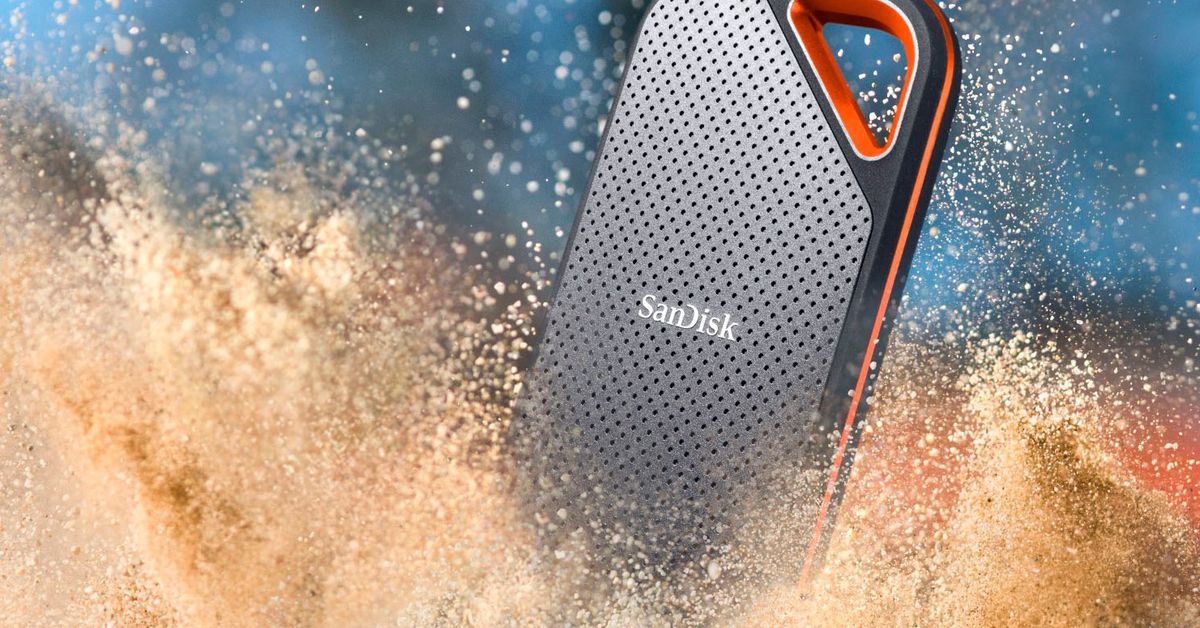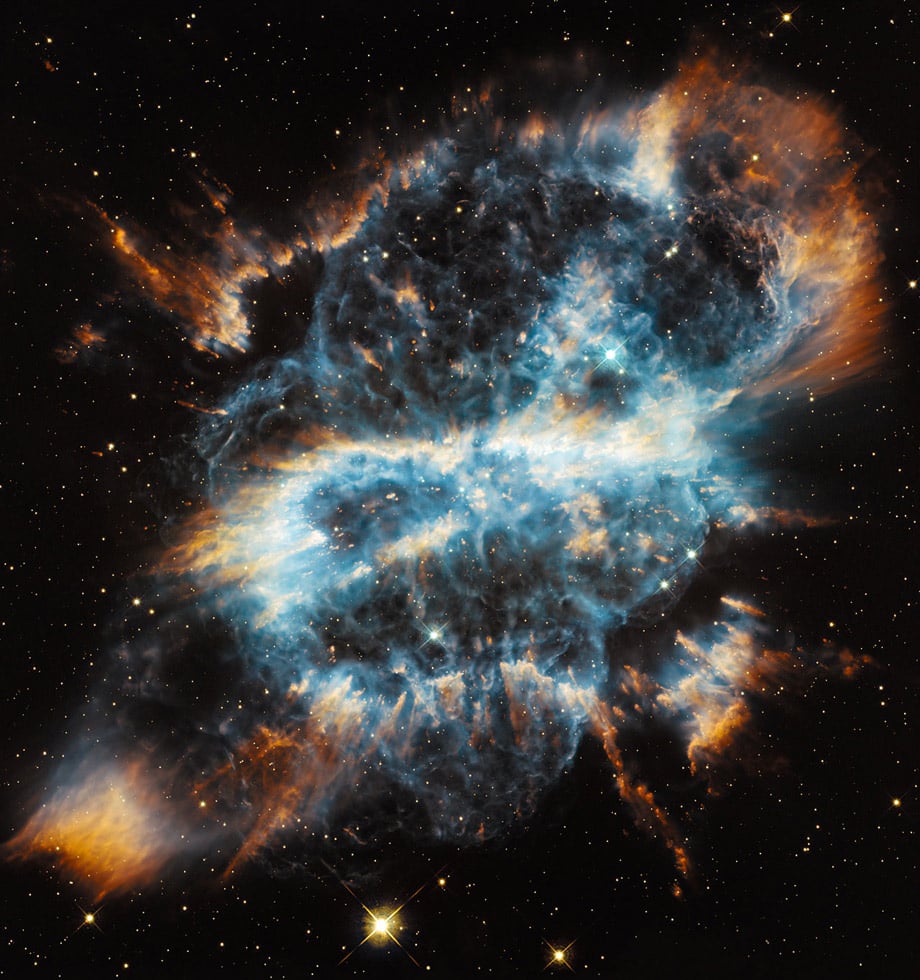Anyone else have a similar experience with one of these drives?
What the fuck are all these comments?
It’s an article about an unresolved and recurring problem with a popular drive that the ostensibly reputable manufacturer is trying to hide.
But 90% of the comments are people jerking themselves off about how smart they are for using RAID, which is irrelevant to the point of the article… But never miss an opportunity to pleasure yourself in public I guess?
Lemmy definitely showing the same symptoms as Reddit as it grows. Too many people trying to show off how technically smart they are and just come off as obnoxious dweebs
It’s becoming more and more noticeable and it’s making me sad.
Lemmy guess… this is your 2nd go with a social media platform?
Lemmy sit you down on my knee son and let grandpa here explain how social media worked in his old times of facebook just like I sat on my grandpappys knee and he explained to me the days of AIM.
/s
Lemmy stop you right there—
I didn’t believe you but yeeeeeesh. Lots of self righteous penises ITT. If people buy an expensive hard drive, it should work. Not everyone knows everything there is to know about data storage, have a little grace people
What, you don’t do RAID-6 and carry around 5 external USB drives to move your data between locations? It’s just so convenient. 🤣
Seriously, I don’t get the raid comments at all.
Every1s doing it
Showing off my superior intellect is always relevant!
deleted by creator
Thank you for saying this
But never miss an opportunity to pleasure yourself in public I guess?
I mean I wasn’t really in the mood but I’ll rub one out just for you
Did you read the article? Because as far as I can see it fails to actually say shit about the problem. From just this article I can see why people are blaming the author for not having redundancy.
The Arstechnica articles however do actually say what’s going on, so yeah this appears to be a real issue with these drives disconnecting.
Yes.
irrelevant to the point of the article
What are you talking about? Of course it’s relevant.
Hard drives are unreliable, they always have been and they probably always will be.
I’ve personally had three drives fail in the last 12 months - two HDDs and one SSD. And both of those were internal hard drives either in a data center or at least on a desk in a properly climate controlled office. All three of them were from far more reputable manufacturers than WD. I suspect none of those failures were the actual disk by the way pretty sure they were all chipset or firmware failures.
Your solution doesn’t have to be RAID, but it has to be something better than “I’ll just keep this file on a single drive”.
WD should absolutely do better - but at the same time even if they did do better it still wouldn’t be good enough. There shouldn’t be any data loss when (not if) a drive fails.
This is exactly why I invested 250x the cost of one SSD into my raid setup. It’s 100 SSD’s in raid1 in a huge rack which slides vertically on 4 guide poles.
I sit under the contraption and lean forward as far as I can, before lowering it onto my back. This method allows me to suck my own cock with ease, so that I don’t need to fellate myself on public forums
so that I don’t need to fellate myself on public forums
But you still do anyway, because you like the way it feels
Ugh, I literally just fucking bought this drive
I almost bought one because they were on huge sale at Amazon.
Yeah, I wouldn’t suggest buying the huge sales at amazon for ssd’s.
They probably pulled the bad drives back from merchant stock to avoid getting returns. Those frequently wind up on Amazon as huge sales.
You’re probably fine, all drives have failures and I haven’t seen anything to indicate this is a widespread issue with the drive.
I was today years old when I learned places like TheVerge are filled with idiots who keep work on USB media, keep no backups, and act like it’s not their fault when something fails.
Places like The Verge used to be staffed by actual enthusiasts because they were created by enthusiasts. Now they have been sold off to another conglomerate (Vox Media) whose primary goal is to maximize profit. That means getting rid of the competent journalists and hiring ignorant gen z morons who never accept responsibility for anything. Every single problem in their life is someone else’s fault.
iVerge has been on the decline for nearly a decade now.
I’m surprised anyone takes them seriously at this point.
They also think it’s newsworthy when they experience one hardware failure. How nice to have a platform to shout your own personal grievances from.
I’ve been telling people for years that the entire 21st century is at risk of being a lost century. Even personally I can’t guarantee my data will be with me 20 years from now even though I back it up. If you care about a photo or document, print it and throw it it a box. As I get older I find more of an obsession with physical media from a preservation point of view. Because I know my books and pictures will be around 50 years from now. Digital files not so much.
I’ve been telling people for years that the entire 21st century is at risk of being a lost century. Even personally I can’t guarantee my data will be with me 20 years from now even though I back it up. If you care about a photo or document, print it and throw it it a box. As I get older I find more of an obsession with physical media from a preservation point of view. Because I know my books and pictures will be around 50 years from now. Digital files not so much.
LOCKSS and KISS, though. Flash chips don’t last forever but are pretty durable, and so are optical media as long as they’re the right material. SSDs decay and HDDs fail, but for magnetic platter media even if the head or motor crashes there’s always the old magnetic microscope in a pinch. USB’s not going anywhere, and if you have four or five copies that you don’t completely neglect and don’t store in the same physical place, presumably you’ll have the chance to notice and take corrective measures if any of them start failing or are at risk.
I don’t actually know that an individual book or picture will still be around in 50 years; Fire, flooding, insects, acidic paper, low-quality ink maybe— Digital stuff’s fragile, but so is physical stuff. Stick it in the attic, and the heat’ll speed up any chemical reactions and probably make it cozier for insects; Stick it in the basement, and the condensation will get you mildew and rot. By contrast, having a flash drive accidentally survive a trip through a washer and dryer is a pretty common occurrence, and I’ve yet to lose a drive even with that level of negligence. Material compatibility’s one of the very most basic parts of a set of very precise manufacturing techniques, tin whiskers seem pretty rare these days, the really scarily insidious stuff like hydrogen embrittlement is super improbable, and most biological forms of decay haven’t adapted to eating cured epoxy and monocrystalline silicon yet.
At least I sorta know how a flash cell or hard drive platter is meant to be structured; Who knows what weird organic reactions and unstable or slowly diffusing molecules are happening in the pile of chemical pigments on a sheet of likely-acidic bleached cellulose and cheap ink or toner, and whether it will still be legible to human eyes in however many years? Plus, a printed photo or document starts fading the very instant it’s created, and it gets a little worse every time you touch it with sweaty human hands or look at it while exhaling moist human breath and corrosive enzymatic saliva droplets under a white LED lamp or G-type star shooting out ionizing UV rays. Digital failures tend to be catastrophic, but at least up until the moment it fails, you can make sure that it is the exact same picture or text— And you can make many, many copies very cheaply, all of them very physically durable compared to paper, and know that they are all the exact same picture and text.
That said, I absolutely agree with your overall assessment that most of the information in the early 21st century, including most of the public Internet/WWW, most likely either will be or already is… Maybe not technically lost, per se, given how much caching and saving happens on private clients, but certainly rendered inaccessible.
Ideally I’d really love to see a return of microfiche, actually, using modern polymers and metallization. I’ve been meaning to look into that for a while now. At a reasonable scale for optical viewing, you could fit… much, much more content than you might expect, and do it several times over, in an entirely reasonable number of pages. Your comment actually spurred me to finally think of a practical way of printing that— for years before, I’d been trying to idly figure out a process based on photomasks and nanoparticles suspended in resin, which had always felt like a very messy and tricky idea, but I just thought of another idea– So thanks for providing some inspiration there.
This is a hot take
Even data from the Apollo missions was found to be either degrading (tapes) or the formats were forgotten and the systems that could read them were gone. They had to do research into rediscovering how to read the data and hunt around for the few antique systems remaining to read the tapes.
deleted by creator
The Apollo mission data and BBC TV recordings weren’t considered important enough at the time to preserve them, it wasn’t until decades later that people realized they were but by then the BBC had destroyed or overwritten much of them and NASA had forgotten how to read much of the data. Then there was the notorious loss of many master recordings by great artists in a fire because the company was just too cheap and lazy to store them properly.
PCM, ASCII, and straight RGBA bitmap encodings aren’t going anywhere. By extension, derived formats like WAV, UTF-8, and word processor files and webpage HTML are mostly fine too. The formats are structurally simple enough that even if the associated file extensions were somehow to be forgotten, all you’d need to do to invent them again is hand the file to a bored nerd over the weekend.
I think you kinda got the BBC and NASA problems backwards. The BBC’s had a couple of prominent incidents where digital “preservation” that was supposed to be eternal couldn’t even be opened anymore after a couple of years, like their Domesday Book/Project application thingy. They’ve also lost a bunch of old shows, like early Dr. Who episodes, I think. NASA didn’t just forget how to read the Apollo tapes; they overwrote them to reuse the tapes, as was their standard practice at the time. The original signal and tapes were very HD (or analog), but most of the videos we have today are from the TV camera that they pointed at their own TV screen last-minute when they realized they didn’t have an adapter for broadcast— The equivalent of a grainy cell phone photo of a screenshot, basically.
The BBC and NASA incidents happened in an era before computers were a ubiquitous commodity product. So, everyone and their cat was basically inventing their own obscure single-implemention proprietary file formats at that time. Nowadays we have established technical standards, as well as formats that have already sorta stood the test of time based on their utility and simplicity— and millions of people who already know how to read them— so that particular vector for bitrot isn’t really as much of an issue anymore.
…That said, I think I sorta missed your point. What you’re really saying is that stewardship of digital records is much trickier and riskier than stewardship of physical records— and that results in stuff being lost. And that is absolutely true.
There is a will but there aren’t enough people with enough brain power to actually do the steps needed. Should it endure? I don’t know, maybe the last few decades should be forgotten.
Mistakes are usually the stuff that should be remembered
Fair
deleted by creator
Crazy how a single event sometimes reminds people of bigger problems, huh?
Digital media, where we store basically everything we care about, is hugely, hugely volatile, unreliable, and fragile. But you never notice it until you’re reminded of it, and then you really notice it. This story reminded people of it.
The reminder to stay grounded is probably also healthy, but I do think you’re missing the point of this comment thread.
redundancy is key
redundancy is key
LOL
So they just had this one drive fail and they decided to make a big news article about it? Hardware fails sometimes. Just RMA the thing and shut the fuck up about it. Go build a gaming PC.
Just throwing this out there for anyone shopping for storage drives. BackBlaze does a pretty good regular writeup on the drives they use and how they perform, how reliable they are, etc. It’s very informative and a fun read (if you’re into nerdy stuff).
https://www.backblaze.com/blog/backblaze-drive-stats-for-q2-2023/
It’s funny how the loss of storage space can be valued diffently. If it’s 3TB of of video footage for a newspaper, that’s weeks if not months of work and money lost. But it could also just be the last 3 Call of Duty’s with patches.
I use mine for desaster recovery.
Using tineshift to take hourly snapshots of my laptop computer.
I don’t think my laptop and the drive fail at the same time so I think my use case is safe even with these risky drives.
I purchased a 2TB one of these SanDisk “extreme portable” drives in 2018, and 2 more 2TB drives in 2019. Purchased each one roughly 6 months apart. Knock on wood…so far no problems at all with any of the 3. But, drives do often fail (I’ve had several fail over the years). One general rule of thumb I have when shopping for drives is I never buy the model with the highest storage capacity for the product line. It’s just a dumb superstition I have, but it seems like the higher capacity ones (like 3TB and above) are the ones that have failed on me in the past.
NAS w/ RAID…
“I trusted all my important data to a single point of failure and now I’m screwed”.
So, yes, I respect that SanDisk’s drive may have a manufacturing defect and that sucks but they have to share the blame for this. Seriously, drive mirroring is a thing and every single OS supports it out of the box. A proper RAID system is a thing and even better. Adding duplicate storage, be it cloud, another NAS or backing up to tape is even better still. It’s the 21st century, you should know that by now if your literal job is based on storing data.
I love fake product reviews. You can see the marketing speak just dripping off of them. I swear people in marketing can’t control themselves when it comes to speaking like an ad.
All the hard drives I own are Sandisk and WD. I have Windows installed on a SanDisk SSD and Steam on another SanDisk SSD. My WD 4TB Blue HDD and WD 4TB Elements Portable HD are for back ups and both are 5 years old now. I haven’t had any issues. Some of the Verge commentors do mention it could be a MacOS thing.













